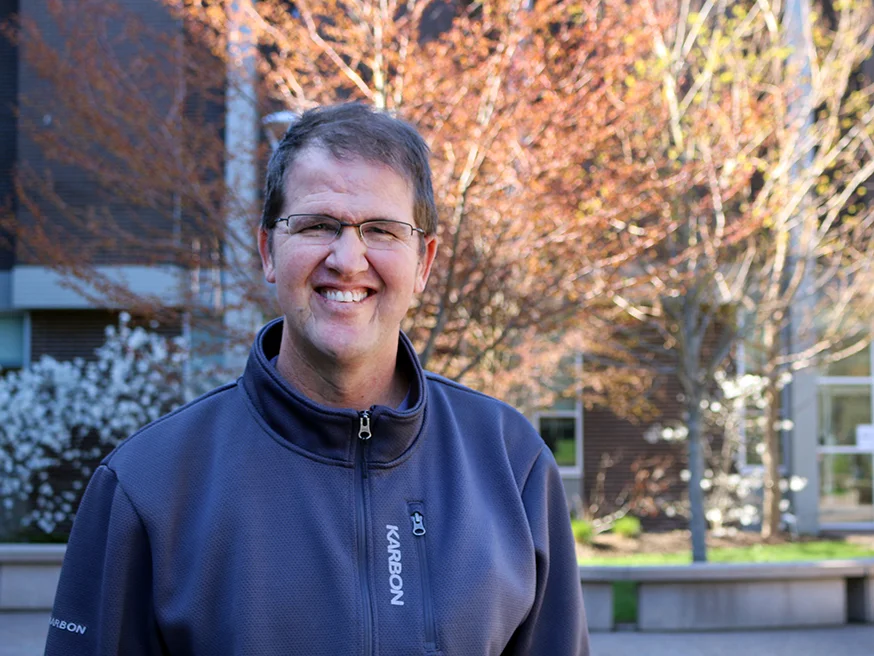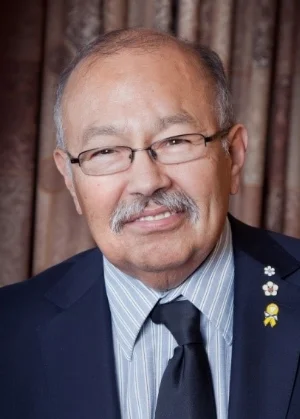When Shane Theunissen was 17 years old, he and his family emigrated to Canada from Apartheid-era South Africa in what might seem an unlikely vehicle: a homemade, 36-foot sailboat.
“You don’t usually imagine sailing across the Atlantic Ocean in a small boat,” says Theunissen. “But when you do something like that, you quickly realize, ‘why not’? It’s quite liberating when you realize the freedoms that you really have, and how big the world really is. It challenges your perspectives.”
Shane has spent much of his subsequent life challenging entrenched perspectives, both in his own academic career and in his work as an educator—which has included time spent as a sailing instructor in the Caribbean, as an elementary-school teacher in the Cree community of Attawapiskat in Northern Ontario, and ten years as a part-time instructor in Saint Mary’s IDS program, where in 2012 he won an Excellence in Teaching award. Last July, he was hired as a full-time professor in Mount Saint Vincent University’s Child and Youth Study department.
And this March, Theunissen—who previously earned an M.A. in Education from Queen’s University—became the first Saint Mary’s student to earn a PhD in International Development Studies, after defending a thesis which explored some of those same perspective-challenging ideas. He looked at how Indigenous groups in colonial societies, including the Maori in New Zealand, the Aymara of Bolivia, and the Karretjiemense in South Africa, have asserted their cultural viability.
“When we look at education imposed from outside on Indigenous communities, it’s typically assimilative,” he says. “So how can we subvert that to allow for Indigenous people to assert more control?”
A real-world example is found in Shane’s past work with youth in Attawapiskat. “In Southern Ontario or most of Nova Scotia,” says Theunissen, “most students’ life experiences and cultural capital are beneficial within that standard curriculum, and the topics of discussion in class. But a Cree student in Northern Ontario, for example, may not have that same luxury, especially if they’re looking at a curriculum imposed from the south.”
In response to that challenge, Theunissen helped create an environmental education program in Attawapiskat, which in some cases involved fairly simple changes that produced major effects. “Instead of playing basketball during Phys. Ed.,” he says, “we might go out on the land and hunt, or perform a small-engine repair course, utilizing some of the cultural capital that students already had in their lives, which they could bring into the classroom to find accreditation. Hopefully that levels the playing field to a degree.”
After six years in Attawapiskat, Shane and his wife moved to downtown Dartmouth, in search of reasonable housing costs (“We wanted a life outside of paying for a house”), access to educational institutions where he could continue his path in academia, and, of course, somewhere to sail.
That latter, lifelong pastime has come to figure in Shane’s work as an educator, and the ways in which he’s putting his Saint Mary’s PhD research into practice, via partnerships with Nova Scotia schools and institutions—including the Maritime Museum of the Atlantic, with which he’s partnering on a program to create boat-building programs for at-risk youth in Halifax.
“The idea is to build a safe space,” says Shane. “You build the boat, you build the space.” This year, Shane will be working with his MSVU students and the Maritime Museum on the project. Next year, he’ll be taking a similar initiative to Pictou Landing First Nation School, where boat building will become part of the math curriculum for students in grades five and six, with students building 12-foot skiffs.
“Instead of learning math purely through abstraction,” says Shane, “we’ll learn through this concrete exercise, which is very applicable to the area’s maritime history. It involves measuring and spatial awareness and other skills…and once the boat is completed, it will be a way to access nature and further the curriculum, in Phys. Ed., science, etc. I see it as being part of a much bigger process.”
Not only do these approaches help Indigenous students in achieving academic success, they help to preserve their “cultural capital”—meaning that rather diverse ways of thinking about and approaching the world are preserved throughout Canadian society.
“When we look at something like assimilative education, it basically means everyone is getting into the same box, thinking similarly about the world,” says Shane. “But to solve problems in the future, we’ll need novel approaches. And to have novel ideas, we need diversity and different perspectives. Promoting diversity is crucial, not just for students, but for the wellbeing of humanity, forever.”








